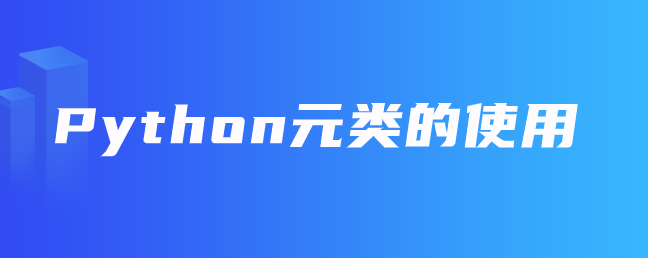您现在的位置是:课程教程文章
Python元类的使用
2023-12-14 22:02课程教程文章 人已围观

1、说明
元类是类的类,是类的模板。元类的实例为类,正如类的实例为对象。
元类的作用就是用来创建类的。因为在子类中会继承元类,所以元类解决了代码冗余。
2、实例
>>> a =10; b = 12.12; c="hello" ;d =[1,2,3,"rr"];e = {"aa":1,"bb":"cc"}
>>> type(a);type(b);type(c);type(d);type(e)
<class 'int'> #a = 10;a也是对象,即10是对象,是int类型的对象
<class 'float'> #float也是类,注意python很多类的写法是小写,有的则是大写
<class 'str'>
<class 'list'>
<class 'dict'>
class Person(object):
print("不调用类,也会执行我")
def __init__(self,name):
self.name = name
def p(self):
print("this is a methond")
print(Person)
tom = Person("tom")
print("tom实例的类型是:%s"%type(tom)) # 实例tom是Person类的对象。
print("Peron类的类型:%s"%type(Person)) #结果看出我们创建的类属于type类,也就是说Person是type类的对象
print("type的类型是:%s"%type(type)) #type是type自己的对象
'''
不调用类,也会执行我
<class '__main__.Person'>
tom实例的类型是:<class '__main__.Person'>
Peron类的类型:<class 'type'>
type的类型是:<class 'type'>
'''以上就是Python元类的使用,希望对大家有所帮助。更多Python学习推荐:python教学
本文教程操作环境:windows7系统、Python 3.9.1,DELL G3电脑。
课程教程:Python元类的使用上一篇:Python如何自定义元类
下一篇:没有了

